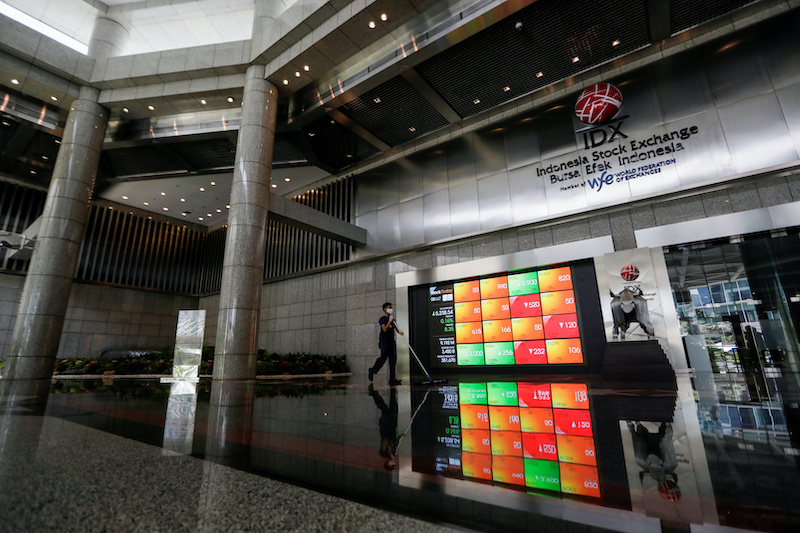Asian shares bounced back on Wednesday buoyed by tech gains on Wall Street, upbeat earnings reports from the United States and easing fears of recession.
Traders’ mood across the region was also lifted by an official pledge from Beijing to support China’s economic recovery from Covid-19 fallout though gains were capped by China keeping its benchmark lending rates for corporate and household loans unchanged.
Also on AF: Singapore Defends Crypto Regime After Three Arrows Collapse
Japan’s Nikkei index closed at its highest level in almost six weeks, with technology stocks tracking Wall Street’s surge.
The Nikkei share average jumped 2.7% to 27,680.26 in its biggest daily gain since May 13. The index rose for the fifth session in a row and posted its highest close since June 10. The broader Topix advanced 2.29% to 1,946.44.
US stocks closed sharply higher on Tuesday as more companies joined big banks in reporting earnings that beat forecasts, offering respite to investors worried about higher inflation and a tightening Fed denting the corporate bottomline.
“The market was driven by Wall Street’s strong finish. There were no market moving cues in Japan,” Koichi Kurose, chief strategist at Resona Asset Management, said.
Technology heavyweights advanced, with chip-related Tokyo Electron and Advantest jumping 4.9% and 4.7%, respectively.
China Property Under Pressure
MSCI’s broadest index of Asia-Pacific shares outside Japan rose 1%, partly driven by a 1.65% jump in resources-heavy Australia.
Mainland China and Hong Kong stocks tracked global peers, to build on the boost from Chinese officials vowing to back the country’s economic recovery after months of Covid lockdowns.
China’s Premier Li Keqiang said on Tuesday recovery in the Chinese economy from a recent bout of weakness is not yet firmly established and “painstaking” efforts are needed to stabilise overall economic performance, according to state media.
At the close, the Shanghai Composite index gained 0.8% to 3,304.72 points, while the blue-chip CSI300 index was up 0.3% at 4,283.8 points.
In Hong Kong, the benchmark Hang Seng Index gained 1.1% to 20,890.22 points, the highest close since July 11, while the Shenzhen Composite Index on China’s second exchange advanced 0.7%, or 15.54 points, to 2,210.46.
One of the major underperformers was the property sector as it continued to face pressure from a scare caused by the proliferation of threats by homebuyers to withhold payments for more than 200 unfinished residential projects.
Russia Gas Supply Boost
“The China property market rout remains in focus,” said Ken Cheung, chief Asian FX strategist at Mizuho Bank. “Despite the government’s measures to ring-fence the mortgage boycott, the property market is far from settling down.”
The real estate index fell 0.49% at close, while mainland developers listed in Hong Kong plunged 1.4%.
Elsewhere across the region, equities in Indonesia climbed 1.8% and were set for their best day in nearly two months, followed by Singapore stocks, which advanced 1.1% to mark their biggest intraday percentage jump in two months.
Stocks in Malaysia and India also rose. Mumbai’s signature Nifty 50 index was up 1.1%, or 182.25 points, at 16,522.80.
Globally, world shares hit a three-week high as strong US corporate earnings and the expected resumption of Russian gas supply to Europe allayed fears of a recession, though the dollar hovered near two-week lows on lower US rate hike expectations.
Markets still expect a large 75-basis-point interest rate rise from the US Federal Reserve next week to rein in white-hot inflation. But this represents a rowback from previous expectations of 100 bps.
In contrast, European Central Bank policymakers are mulling raising rates by a bigger-than-expected 50 basis points on Thursday.
Dollar Steadies, Oil Slumps
“At the margins there is some good news like Nord Stream,” said Luca Paolini, chief strategist at Pictet Asset Management.
“Overall, there is no reason why the market should rally that much, but it springs from inflation expectations.”
MSCI’s world stock index gained 0.36% after rising 2% on Tuesday.
The dollar was steady at 106.67 against an index of currencies, close to two-week lows hit in the previous session.
Oil prices slumped more than $1 a barrel, pressured by global central bank efforts to tame inflation and ahead of expected builds in U.S. crude inventories as product demand weakens.
US crude fell 1.75% to $102.40 a barrel while Brent crude dropped 1.5% to $105.73 per barrel.
Key figures
Tokyo – Nikkei 225 > UP 2.7% at 27,680 (close)
Hong Kong – Hang Seng Index > UP 1.1% at 20,890 (close)
Shanghai – Composite > UP 0.8% at 3,305 (close)
New York – Dow > UP 2.4% at 31,827 (Tuesday close)
- Reuters with additional editing by Sean O’Meara
Read more:
China Keeps Benchmark Lending Rates Unchanged in July
























